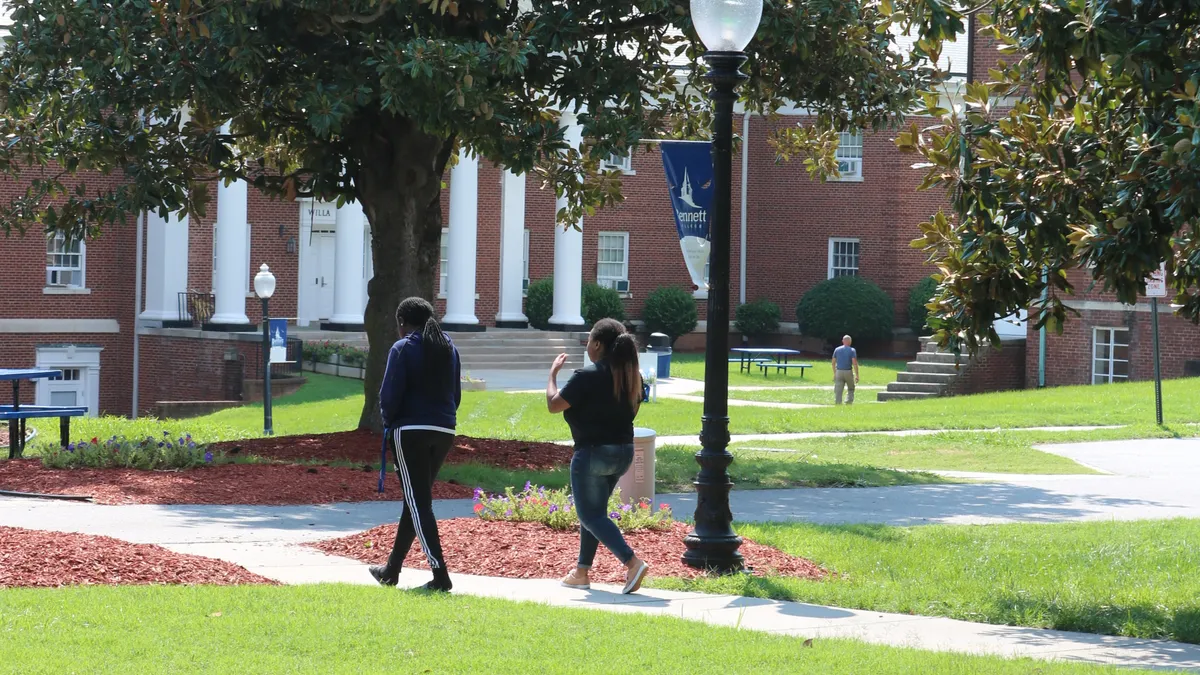Dive Brief:
- The peer review process used by the Southern Association of Colleges and Schools Commission on Colleges (SACSCOC) — the primary accrediting body for many historically black colleges and universities (HBCUs) — lacks transparency, is poorly structured and may be biased, resulting in "harsher sanctions" for HBCUs than other institutions, contends a new white paper from the United Negro College Fund (UNCF).
- Twenty-nine HBCUs received warnings and 20 were put on probation between 1998 to 2013, a rate "considerably higher" than that of SACSCOC's nearly 800 institutions, according to the paper. Meanwhile, nine of UNCF's 37 member institutions were sanctioned from 2015 to 2018.
- The report offers several recommendations to improve SACSCOC's peer review process, including "training to reduce implicit bias," having a third-party review the accreditor's processes and making sanctions data more available to the public.
Dive Insight:
Like other colleges, HBCUs have struggled in the last decade amid enrollment declines and lower levels of public support. Enrollment at HBCUs has dropped from a high of about 326,000 in 2010 to 298,000 today, the Los Angeles Times reported.
As a result, three HBCUs have closed since 2000 and several others are fighting financial issues that have put their futures into question.
Among those is Bennett College, which is hanging on to its accreditation through a court order after SACSCOC found it lacked a "stable financial base." The accreditor's decision came after the all-women college raised more than $9.5 million over a two-month period in a bid to keep its accreditation. Likewise, Cheyney University of Pennsylvania, the oldest HBCU in the U.S., is fighting to keep its accreditation by raising $4 million by next month, WHYY reported.
Raising large sums may be harder for HBCUs. In 2017, for example, only two of 462 gifts totaling $1 million or more went to HBCUs, according to Inside Philanthropy.
Last year, findings from the Government Accountability Office about the delinquency rate of the federal loan program for HBCUs also suggest that some of those institutions may be struggling financially. Almost three in 10 payments to the HBCU Capital Financing Program were delinquent in 2017, and three of the 46 participating institutions defaulted, the report found.
Others have suggested public funding has never been equitable for HBCUs. In Maryland, four HBCUs were offered $100 million to settle a long-running lawsuit that alleges the state allowed predominantly white institutions to duplicate programs offered by HBCUs, which then struggle to draw diverse pools of applicants. Plaintiffs in the case contended it would take several times that amount to fix a history of inequality.
Another study, meanwhile, found HBCUs face higher premiums for tax-exempt municipal bonds, a trend that could be due to racial bias.
There has been growing momentum to increase funding for HBCUs. Last year, the federal farm bill boosted funding for 19 land-grant HBCUs and gave them more financial flexibility for budgeting. And presidential hopeful Sen. Elizabeth Warren, D-Mass., proposed a federal fund of at least $50 billion for HBCUs.













